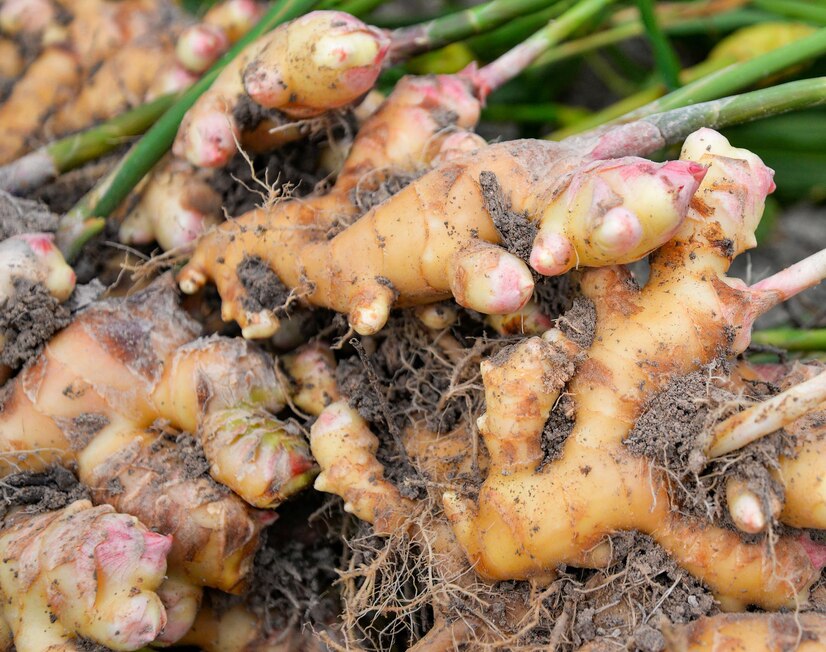Ginger farming is gaining traction in South Africa due to its increasing demand in local and international markets. To achieve high yields and quality, selecting the right soil is crucial. Ginger (Zingiber officinale) thrives in specific soil conditions that promote proper root development and prevent disease. Below are the key soil requirements for successful ginger farming in South Africa.
Ideal Soil Characteristics for Ginger Farming
1. Well-Drained Soil
Ginger requires soil with excellent drainage to prevent waterlogging, which can cause root rot. Sandy loam and loamy soils with good permeability are ideal for ensuring proper moisture levels without excessive retention.
2. Soil Texture
A light-textured soil, such as sandy loam, is preferred for ginger farming as it allows for easy root expansion and aeration. Heavy clay soils should be avoided unless they are well-structured and improved with organic matter to enhance drainage.
3. Soil pH
Ginger grows best in slightly acidic to neutral soils with a pH range of 5.5 to 6.5. Farmers should conduct regular soil tests and, if necessary, apply lime to increase pH or sulfur to decrease it.
4. Rich in Organic Matter
Organic matter improves soil structure, enhances water retention, and provides essential nutrients. Adding well-decomposed compost, manure, or cover crops such as legumes can improve soil fertility and support healthy ginger growth.
5. Nutrient-Rich Soil
Ginger is a nutrient-demanding crop, requiring adequate amounts of nitrogen (N), phosphorus (P), and potassium (K). A balanced soil amendment strategy that includes organic fertilizers, such as compost and manure, alongside mineral fertilizers ensures optimal nutrient availability.
6. Warm and Moist Soil Conditions
Ginger thrives in warm soil temperatures between 22°C and 30°C, making regions with mild winters and warm summers ideal. The soil should also retain adequate moisture, but excess water must drain away to prevent fungal diseases.
Best Regions in South Africa for Ginger Farming
Several regions in South Africa offer suitable soil conditions for ginger cultivation:
- KwaZulu-Natal – Offers well-drained sandy loam soils and a warm, humid climate ideal for ginger growth.
- Limpopo – Has fertile soils and warm temperatures, with irrigation support enhancing productivity.
- Mpumalanga – Features good rainfall distribution and loamy soils suitable for ginger farming.
- Eastern Cape – With careful soil management, some parts of the province can support ginger cultivation.
Soil Preparation for Ginger Farming
To optimize soil for ginger farming, follow these preparation steps:
- Deep Tillage: Loosen the soil to a depth of at least 30 cm to promote root development.
- Organic Amendments: Incorporate compost or manure before planting to enhance soil fertility.
- Mulching: Helps retain moisture, suppress weeds, and improve soil structure.
- Crop Rotation: Avoid planting ginger in the same soil consecutively to reduce soil-borne diseases and nutrient depletion.
Selecting the right soil is essential for successful ginger farming in South Africa. Well-drained, nutrient-rich sandy loam or loamy soils with good organic matter content and proper pH levels provide the best conditions for high yields. By implementing proper soil management techniques, farmers can improve productivity and maximize their ginger farming potential.
Join 'Farmers Mag' WhatsApp Channel
Get the latest Farming news and tips delivered straight to your WhatsApp
CLICK HERE TO JOIN






